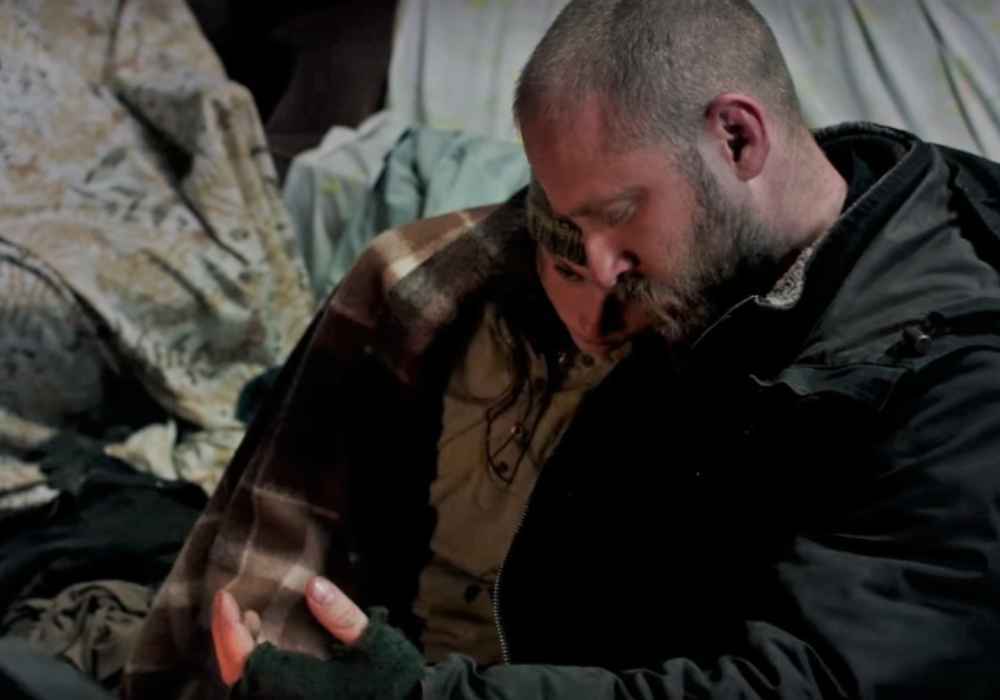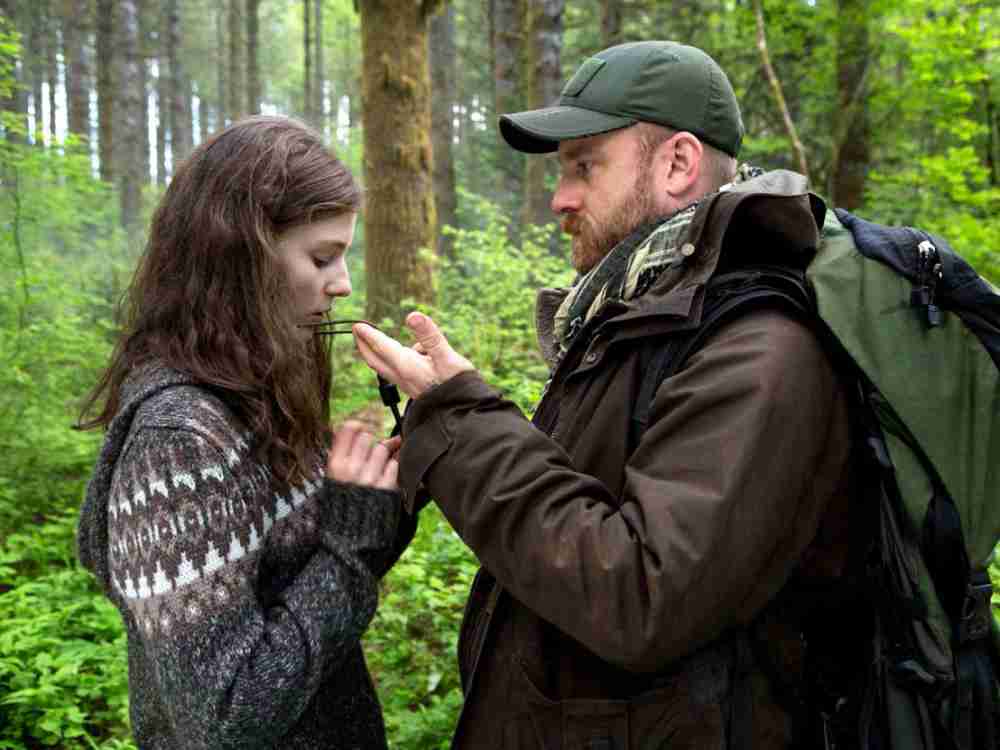In this essay, Gillie Collins explores how Leave No Trace uses the unusual story of a father and daughter living in the woods to tell the classic coming of age narrative of parent-child separation. This is the third article in our Special Issue on Leave No Trace, which is now available as an ebook.

Films about living off the grid tend to hurtle toward a collision of worlds. In Debra Granik’s Leave No Trace, military veteran Will (Ben Foster) and his teenage daughter Tom (Thomasin McKenzie) live in an illegal camp in Portland’s Forest Park. Overhead, sunlight filters through the canopy, and a spider spins its thin, silvery web. Father and daughter spend their days trekking through the brush, scavenging for mushrooms, and fortifying their tent — but it is only a matter of time before they are banished from Eden and forced (like the rest of us) to play by society’s rules.
In Leave No Trace, Granik uses the high-stakes set-up of her genre — the divide between nature and civilization — to trace an ordinary familial journey: the process of separating from a parent during adolescence. In the wilderness, Tom and Will are closer than they would be otherwise; their survival depends on their cohesion as a unit. Upon re-entering society, however, they stumble into a new economy of space, and the state draws boundaries between them. Through trial and error — and a zigzagging odyssey into and out of civilization — Tom and Will seek a new equilibrium in their relationship, one that will afford Tom the chance to follow her own desires and intuitions.

Setting Leave No Trace in the wilderness allows Granik to portray an extremely enmeshed — yet, under the circumstances, healthy — father-daughter relationship. In the park, Tom and Will have little use for boundaries. They work together to find food and start a fire, and they share a tent because, as Tom later tells a social worker, “It’s warmer with two people at night.” This proximity enables a fluidity in their roles. One night, Will shoos a pack of wolves and covers Tom with an extra blanket; later that night, she comforts him after a PTSD nightmare. It’s tempting to assume that a child should not bear the burden of parental trauma, but Tom does not visibly resent their co-dependence.
Want to read the rest of the article?
Get the Leave No Trace ebook
Relive the highs and lows of Debra Granik’s remarkable coming-of-age story and discover how the filmmakers brought it to life.

